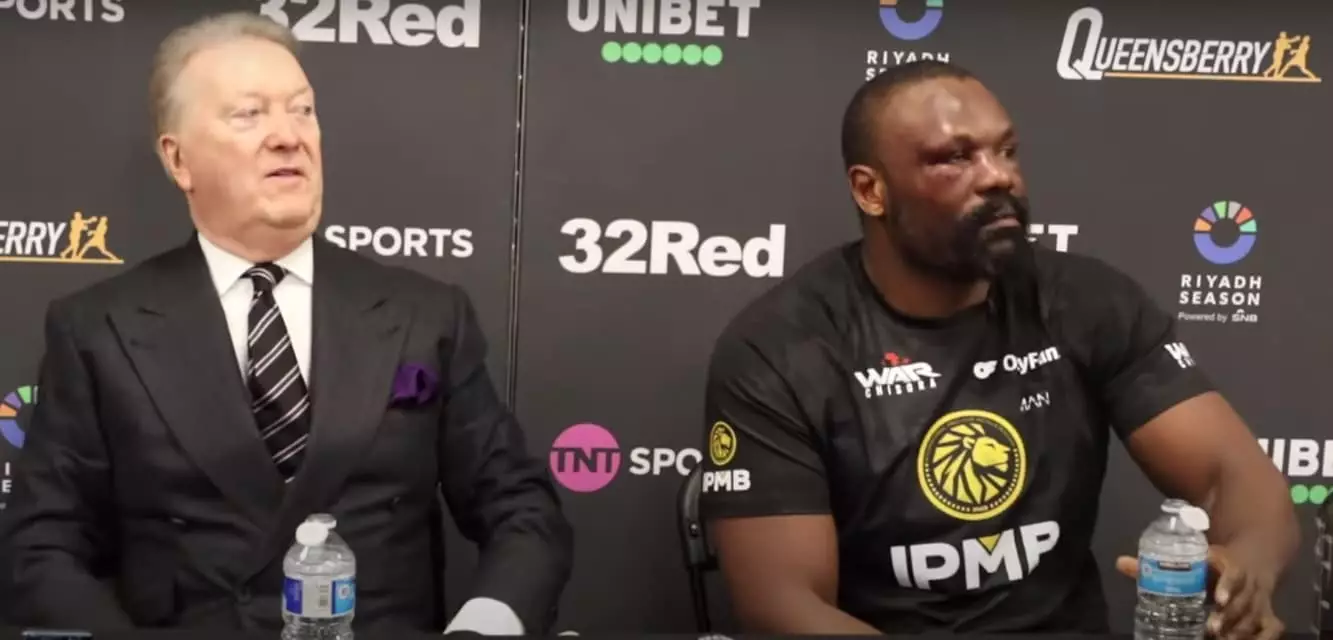After a recent victory over Otto Wallin, Derek Chisora finds himself expressing aspirations for a showdown with formidable opponents, including Anthony Joshua, Oleksandr Usyk, and Daniel Dubois. Chisora, now 36-13, seems driven by ambition, indicative of his long-standing pursuit in the heavyweight boxing landscape. The notion of challenging elite fighters like Joshua and Usyk may appear praiseworthy at first glance; however, the underpinning realities of the heavyweight division cast shadows over these aspirations.
Chisora’s recent win has been framed as a critical step toward securing a major title bout. However, one must scrutinize the circumstances surrounding the fight with Wallin. Indeed, Wallin is categorized as a light-hitting fighter, and his recent knockout loss to Joshua points toward a significant disparity in competition levels within the heavyweight division. Chisora may have taken a calculated risk in selecting Wallin—one that allowed him to claim a victory but raises questions about the legitimacy of such a path leading to contender status.
The IBF sanctioned the bout as a title eliminator, yet both Chisora and Wallin’s rankings—9th and 12th, respectively—suggest a conflict between their standing in the sport and the significance of this eliminator. Boxing enthusiasts recognize that eliminators should ideally feature fighters on the brink of a title shot or those capable of offering competitive performances against top-tier talent. By this standard, it’s challenging to rationalize how a fight between Chisora and Wallin qualified for such high stakes.
Chisora’s inclination to face Usyk seems particularly ambitious, if not unrealistic. It’s worth pondering whether Usyk, a unified champion with a compelling legacy and youthful vigor, would consider taking on Chisora. The appeal for Usyk would be minimal, both financially and strategically, when weighed against the risks of facing an aging fighter devoid of credible recent accomplishments.
Meanwhile, a potential matchup with Dubois could hold more weight, primarily due to Dubois’ IBF mandatory status. Yet, Dubois might not prioritize fighting Chisora; after all, opportunities to challenge champions like Joshua or even Usyk are more enticing for his career trajectory. Boxing is known for its intricate matchmaking, and it’s difficult to envision a scenario where Dubois finds himself in a low-stakes matchup against Chisora when the allure of high-profile fights looms large.
The Perception of Chisora’s Skills
Critics and fans largely doubt Chisora’s ability to pose any real challenge against the heavyweight big guns. The boxing community often evaluates a fighter not merely on their record but on their capacity to engage competitively with top-caliber opponents. With the historical backdrop of Chisora’s encounters—most notably losing to elite fighters—it’s understandable why spectators express skepticism over potential matchups against Usyk, Joshua, or Dubois.
The overarching sentiment is that while Chisora may dream big, the reality of his recent performance against a less formidable opponent reflects more of a nostalgic desire for relevance rather than a genuine call to action for competitive adulthood in the heavyweight sphere. Consequently, the conversation should pivot from whether Chisora deserves to fight these elite fighters to what viable paths truly exist for him moving forward in a sport that increasingly favors talent over legacy.


Leave a Reply